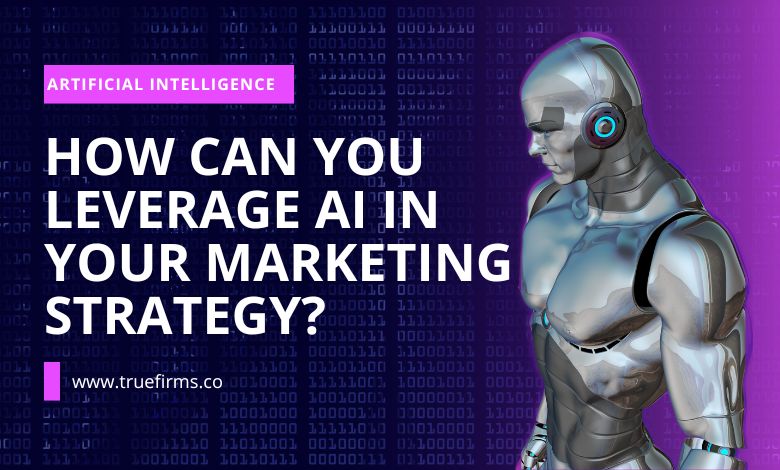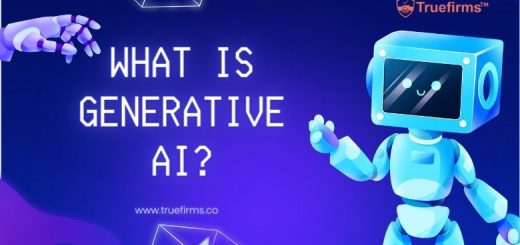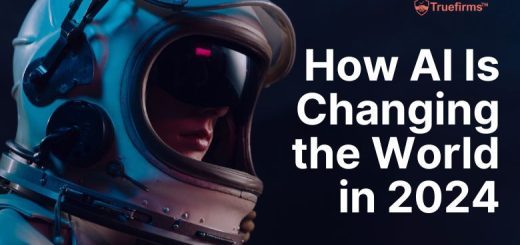What is Artificial Intelligence (AI)? How can you leverage AI in your marketing strategy?

Introduction
Artificial Intelligence (AI) is more than just a buzzword. It’s a transformative technology that’s reshaping industries, including marketing. Understanding AI and its potential applications in marketing strategies is crucial for businesses striving to stay ahead in a competitive environment. In this blog, we’ll delve into the fundamentals of AI, exploring what it is and how it can be effectively leveraged to boost marketing efforts. From personalized customer experiences to data-driven insights, AI offers a myriad of opportunities for businesses to optimize their marketing strategies and drive tangible results. Let’s explore the potential of artificial intelligence and how it might be used to open up new marketing opportunities.
What is Artificial Intelligence (AI)?
Artificial Intelligence (AI) refers to the simulation of human intelligence processes by machines, typically through computer systems.
These processes include learning, reasoning, and self-correction. AI enables machines to analyze vast amounts of data, recognize patterns, and make decisions with minimal human intervention. It encompasses various technologies such as machine learning, natural language processing, and computer vision. AI systems can perform tasks that traditionally require human intelligence, ranging from speech recognition to autonomous decision-making. In essence, AI aims to replicate human cognitive abilities, driving innovations across industries and revolutionizing how we approach complex problems.
How does Artificial Intelligence work?
AI works through various techniques and algorithms designed to mimic human cognitive functions. One of the primary mechanisms behind AI is machine learning, where algorithms learn from large datasets to identify patterns and make predictions or decisions.
Machine learning algorithms are trained using labeled data, where the input and the corresponding output are provided. Through iterations, the algorithm adjusts its parameters to minimize errors and improve its accuracy in predicting outcomes.
Neural networks, which are computer models based on the architecture and operations of the human brain, are another essential element of artificial intelligence. Neural networks consist of interconnected layers of nodes, or artificial neurons, that process and analyze data.
Additionally, AI utilizes techniques such as natural language processing (NLP) to understand and generate human language and computer vision to interpret visual information. These components work together to enable AI systems to perform tasks ranging from image recognition to language translation, revolutionizing industries across the globe.
How can you leverage AI (artificial intelligence) in your marketing strategy?
Integrating AI into your marketing strategy can yield significant benefits, empowering you to enhance customer experiences, optimize campaigns, and drive better results. Here are several ways you can leverage AI in your marketing efforts:
1. Personalized Content: AI enables you to analyze customer data and preferences to deliver highly personalized content and recommendations. By understanding individual interests and behaviors, you can tailor your marketing messages to resonate with your target audience on a deeper level, increasing engagement and conversion rates.
2. Predictive Analytics: AI-powered predictive analytics can forecast future trends and consumer behavior based on historical data. By leveraging predictive modeling, you can anticipate customer needs and preferences, allowing you to proactively adjust your marketing strategies and stay ahead of the competition.
3. Marketing Automation: AI-driven automation tools streamline repetitive tasks such as email marketing, social media scheduling, and ad campaign management. By automating these processes, you can free up valuable time and resources, allowing your team to focus on more strategic initiatives while ensuring consistent and timely communication with your audience.
4. Customer Service Chatbots: AI-powered chatbots can provide instant support and assistance to your customers, addressing their queries and concerns in real-time. By implementing chatbots on your website or social media platforms, you can improve customer satisfaction, reduce response times, and enhance the overall user experience.
5. Sentiment Analysis: AI algorithms can analyze social media conversations, reviews, and feedback to gauge customer sentiment towards your brand or products. By monitoring sentiment analysis, you can identify potential issues or opportunities early on, allowing you to proactively address concerns and capitalize on positive feedback.
By using the power of AI in your marketing strategy, you can gain valuable insights, automate repetitive tasks, and deliver personalized experiences that drive customer engagement and loyalty. Embracing AI technology can give your business a competitive edge, enabling you to adapt and thrive in an increasingly digital world.
How AI (artificial intelligence) is Reshaping Marketing
Artificial Intelligence (AI) is revolutionizing marketing practices, reshaping the way businesses engage with their audience and optimize their campaigns. Here’s how AI is transforming marketing:
1. Unparalleled Personalization: AI leverages data analytics to understand customer behavior and preferences at a granular level. This enables marketers to create hyper-targeted campaigns with messaging that resonates on an individual level, driving higher engagement and conversion rates.
2. Content Creation Powerhouse: AI technology has evolved to become a content creation powerhouse. From generating content ideas to writing ad copy and personalizing emails at scale, AI tools streamline content creation processes, freeing marketers to focus on strategic planning and creative direction.
3. Smarter Targeting & Analytics: AI eliminates the guesswork in targeting by predicting customer needs and behavior based on data insights. Marketers can leverage AI-driven analytics to optimize campaigns in real-time, ensuring maximum impact and ROI.
4. Automated Tasks & Workflows: AI automates repetitive tasks and workflows, such as scheduling social media posts and generating performance reports. By delegating these tasks to AI-powered tools, marketers can allocate more time and resources to high-level strategic thinking and innovation.
The key takeaway? AI is not just a buzzword; it’s a transformative technology that empowers marketers to deliver the right message to the right person at the right time. Businesses can stay ahead of the curve and grab new chances for growth and success by adopting AI-driven solutions.
Conclusion
The integration of artificial intelligence (AI) into marketing strategies represents a paradigm shift in how businesses connect with their audience and drive results. From unparalleled personalization to automated workflows and smarter targeting, AI offers a multitude of benefits for marketers seeking to enhance their campaigns’ effectiveness and efficiency. By leveraging AI-driven insights and tools, businesses can unlock new opportunities for engagement, optimize their resources, and stay ahead of the competition. Adopting AI is not just a choice but a necessity for businesses looking to thrive. As AI continues to evolve, its impact on marketing will only become more profound, shaping the future of customer engagement and brand innovation.
Read more
What Is Generative AI? Everything You Need to Know
Devin, the World’s First AI Software Engineer: Redefining Software Engineering
The Future of (AI)Artificial Intelligence: How AI Is Changing the World in 2024











